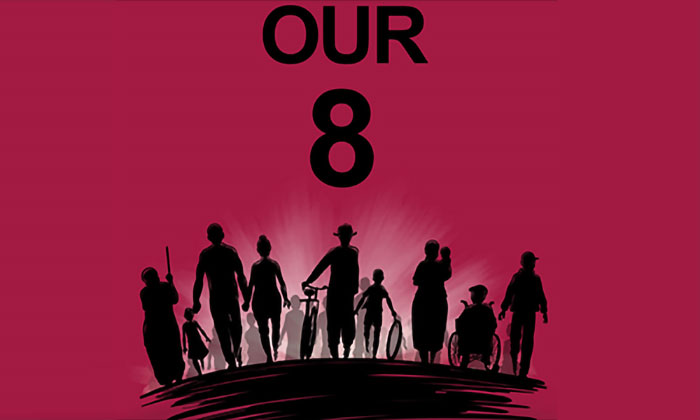As in the rest of the world, the COVID-19 pandemic has hit Rwanda very hard, causing disruption of businesses, job losses, and devastating the livelihoods of many households, which has led to increasing poverty. The Government of Rwanda and its development partners have reacted to this crisis by developing an economic recovery plan that aims at both repairing the damages done and strengthening the resilience of the country’s socio-economic systems ahead of eventual future shocks.
Considering this, the Rwanda Workers’ Trade Union Confederation (CESTRAR) has mobilised to ensure that these policy responses are centered on people and their rights, especially those most affected and left behind like the young and informal workers, who represent 72.5 and 94.3 per cent of the active labour force respectively. However, most of the workers under these categories are too busy trying to survive and are often not interested in trying to make sense of complicated policy and legal materials about their rights. Therefore, the comic book developed by the Friedrich Ebert Stiftung (FES) can be very useful.
Entitled “Our 8”, the book is very eye-catching and can be easily read by anyone. The short fictive individual stories composing the book explain in a very accessible way the linkages between the language of ILO core conventions, the Rwandan labour law and SDG 8 indicators in normal daily life. These stories can be easily shared on social media, where these workers can access them. Furthermore, the book is available for free in print and digital version both in English and Kinyarwanda.
“The importance of this very useful tool is that it will facilitate the work of CESTRAR to demystify the language of law texts and the very specific terminology of global development policies, which are not well understood by many workers and citizens,” explained Jordi Michel Musoni, deputy general-secretary of CESTRAR.
A tool that benefits all stakeholders
“This comic book has a crucial role for the improvement of social dialogue in Rwanda,” said Jordi, as it will help many workers to increase their knowledge about their rights and responsibilities, and decide to actively participate in activities of trade unions in their respective sectors. The book will also help to improve the organisational and advocacy capacity of trade unions to effectively influence decisions related to employment relations and the well-being of workers. On the side of the government, these sessions will be an important opportunity to showcase different ways employers and workers relations can be enhanced to contribute to Rwanda’s economic growth and improve its social welfare.
CESTRAR is planning to collaborate with the Ministry of Public Service and Labour, employers organisations, and other stakeholders to reach out to as many groups of workers as possible by conducting countrywide sessions to discuss and distribute the book. The employers’ organisations will also take part in these sessions and discuss the role of employers in the quest for safeguarding productive labor relations and existing attitudes about some anti-union practices will also be addressed. In addition, the labour inspectors across the country can use this opportunity to improve the enforcement of labour law through a strengthened engagement with employers and trade unions regarding their respective constituencies’ rights and responsibilities.


